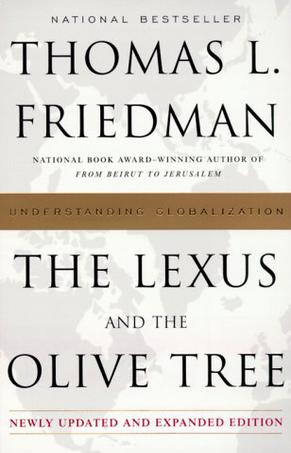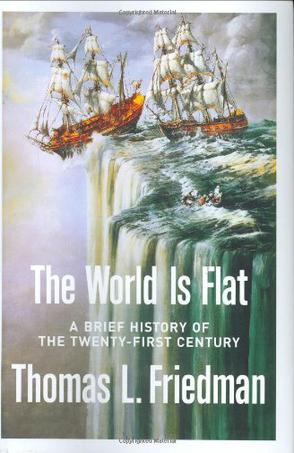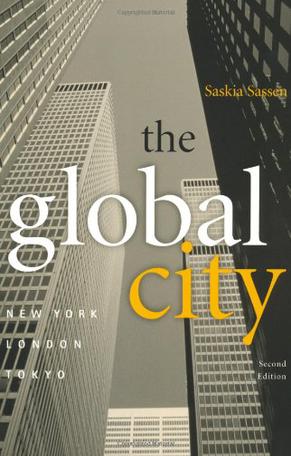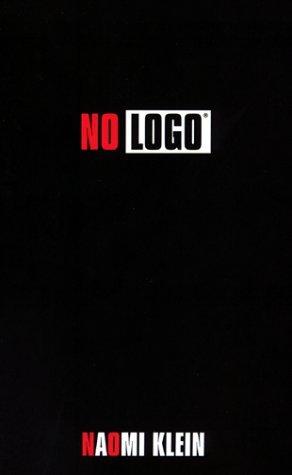-

Globalization, Poverty and Inequality
-

World on Fire
For over a decade now, the reigning consensus has held that the combination of free markets and democracy would transform the third world and sweep away the ethnic hatred and religious zealotry associated with underdevelopment. In this astute, original, and surprising investigation of the true impact of globalization, Yale Law School professor Amy Chua explains why many developing countries are in fact consumed by ethnic violence after adopting free market democracy. Chua shows how in non-Western countries around the globe, free markets have concentrated starkly disproportionate wealth in the hands of a resented ethnic minority. These “market-dominant minorities” – Chinese in Southeast Asia, Croatians in the former Yugoslavia, whites in Latin America and South Africa, Indians in East Africa, Lebanese in West Africa, Jews in post-communist Russia – become objects of violent hatred. At the same time, democracy empowers the impoverished majority, unleashing ethnic demagoguery, confiscation, and sometimes genocidal revenge. She also argues that the United States has become the world’s most visible market-dominant minority, a fact that helps explain the rising tide of anti-Americanism around the world. Chua is a friend of globalization, but she urges us to find ways to spread its benefits and curb its most destructive aspects. -

The Lexus and the Olive Tree
在线阅读本书 From one of our most perceptive commentators and winner of the National Book Award, a comprehensive look at the new world of globalization, the international system that, more than anything else, is shaping world affairs today. As the Foreign Affairs columnist for The New York Times , Thomas L. Friedman has traveled the globe, interviewing people from all walks of contemporary life: Brazilian peasants in the Amazon rain forest, new entrepreneurs in Indonesia, Islamic students in Teheran, and the financial wizards on Wall Street and in Silicon Valley. Now Friedman has drawn on his years on the road to produce an engrossing and original look at globalization. Globalization, he argues, is not just a phenomenon and not just a passing trend. It is the international system that replaced the Cold War system; the new, well-greased, interconnected system: Globalization is the integration of capital, technology, and information across national borders, in a way that is creating a single global market and, to some degreee, a global village. Simply put, one can't possibly understand the morning news or one's own investments without some grasp of the system. Just one example: During the Cold War, we reached for the hot line between the White House and the Kremlin--a symbol that we were all divided but at least the two superpowers were in charge. In the era of globalization, we reach for the Internet--a symbol that we are all connected but nobody is totally in charge. With vivid stories and a set of original terms and concepts, Friedman offers readers remarkable access to his unique understanding of this new world order, and shows us how to see this new system. He dramatizes the conflict of "the Lexus and the olive tree"--the tension between the globalization system and ancient forces of culture, geography, tradition, and community. He also details the powerful backlash that globalization produces among those who feel brutalized by it, and he spells out what we all need to do to keep the system in balance. Finding the proper balance between the Lexus and the olive tree is the great drama of he globalization era, and the ultimate theme of Friedman's challenging, provocative book--essential reading for all who care about how the world really works. -

The World Is Flat
In this brilliant new book, the award-winning New York Times columnist Thomas Friedman demystifies the brave new world for readers, allowing them to make sense of the often bewildering global scene unfolding before their eyes. With his inimitable ability to translate complex foreign policy and economic issues, Friedman explains how the flattening of the world happened at the dawn of the twenty-first century; what it means to countries, companies, communities, and individuals; and how governments and societies can, and must, adapt. The World Is Flat is the timely and essential update on globalization, its successes and discontents, powerfully illuminated by one of our most respected journalists. -

The Global City
This classic work chronicles how New York, London, and Tokyo became command centers for the global economy and in the process underwent a series of massive and parallel changes. What distinguishes Sassen's theoretical framework is the emphasis on the formation of cross-border dynamics through which these cities and the growing number of other global cities begin to form strategic transnational networks. All the core data in this new edition have been updated, while the preface and epilogue discuss the relevant trends in globalization since the book originally came out in 1991. -

No Logo
With a new Afterword to the 2002 edition. No Logo employs journalistic savvy and personal testament to detail the insidious practices and far-reaching effects of corporate marketing—and the powerful potential of a growing activist sect that will surely alter the course of the 21st century. First published before the World Trade Organization protests in Seattle, this is an infuriating, inspiring, and altogether pioneering work of cultural criticism that investigates money, marketing, and the anti-corporate movement. As global corporations compete for the hearts and wallets of consumers who not only buy their products but willingly advertise them from head to toe—witness today’s schoolbooks, superstores, sporting arenas, and brand-name synergy—a new generation has begun to battle consumerism with its own best weapons. In this provocative, well-written study, a front-line report on that battle, we learn how the Nike swoosh has changed from an athletic status-symbol to a metaphor for sweatshop labor, how teenaged McDonald’s workers are risking their jobs to join the Teamsters, and how “culture jammers” utilize spray paint, computer-hacking acumen, and anti-propagandist wordplay to undercut the slogans and meanings of billboard ads (as in “Joe Chemo” for “Joe Camel”). No Logo will challenge and enlighten students of sociology, economics, popular culture, international affairs, and marketing. “This book is not another account of the power of the select group of corporate Goliaths that have gathered to form our de facto global government. Rather, it is an attempt to analyze and document the forces opposing corporate rule, and to lay out the particular set of cultural and economic conditions that made the emergence of that opposition inevitable.”—Naomi Klein, from her Introduction